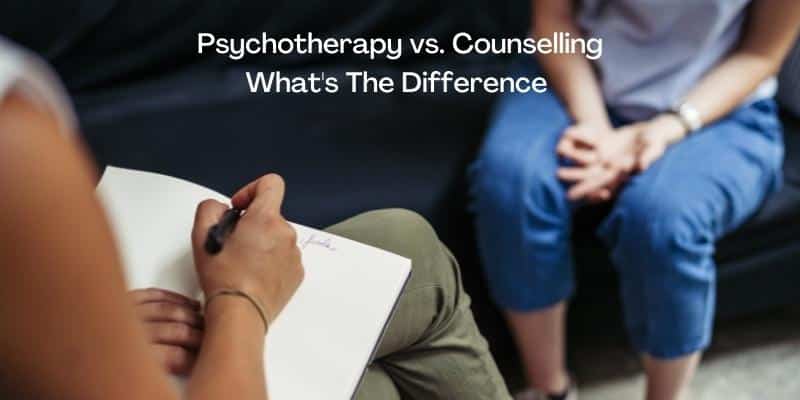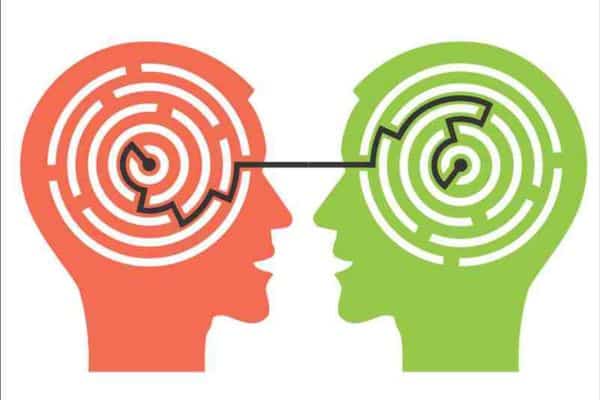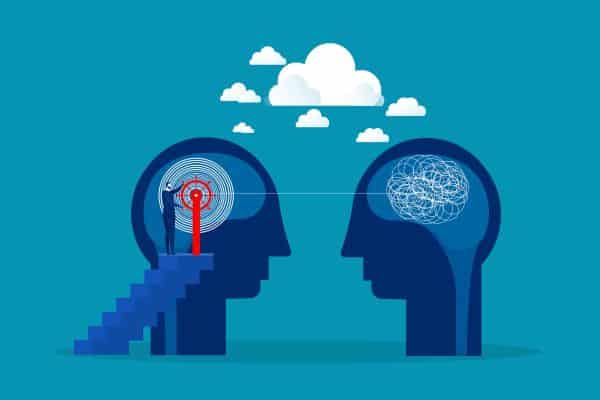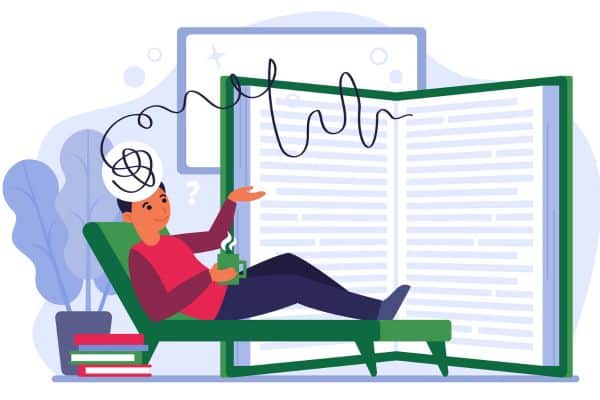“‘Positive vibes only’ isn’t a thing. Humans have a wide range of emotions and that’s OK.”
Psychotherapy and counselling are therapy sessions aimed at helping clients solve the problems and issues they are facing in their lives. Most therapists nowadays use counselling and psychotherapy interchangeably. I believe we can call it ‘counselling’ or ‘psychotherapy’, but the aim remains the same – to help personal change. However, I will try my best to make some distinctions between the two.
What Is Psychotherapy?
Psychotherapy is a way of helping individuals to deal with various mental health issues or emotional challenges. Psychotherapy aids a person to process and heal from their deep-rooted issues like childhood trauma, bereavement, bad experiences, negative beliefs and more. It helps a person to get back on track with increased well-being and functionality. Psychotherapy aims to reduce mental issues such as depression disorders, loss of a close relative, or difficulties coping with daily life, thus improving health and mental wellness.
Psychotherapy has many different types of therapies under its vast umbrella. However, all therapies have the same goal, to help people heal and move from dysfunctionality to functionality. They help to process the ‘stuckness’ in a person. The therapeutic alliance is a priority to help a therapist dive deep into a person’s issues and start the process of healing.
I have mentioned a few therapies here.
Cognitive-behavioural therapy – helps individuals identify and change either behaviour or thinking that seems harmful and ineffective, replacing them with functional behaviours.
Interpersonal therapy– Helps clients understand some of the underlying personal issues like conflicts, domestic issues, among others.
Dialectical therapy -Deals with regulating the client’s emotions.
Supportive therapy – A psychotherapist will use encouragement and guidance in helping patients build their resources.
Psychodynamic therapy – The client will work with the psychotherapist to change old ways and to improve the client’s self-awareness.
Transactional Analysis Therapy (TA) – TA puts faith in the client’s ability to rise above habit patterns and select new goals and behaviour by increasing awareness through an emphasis on their thinking, feeling and behavioural aspects of their personality.
What Is Counselling?
If I were to make a difference between counselling and psychotherapy, I would suggest counselling is ‘talk’ therapy. When I say ‘talk’ it is not limited to verbal conversations. It includes activities like drawing, relaxation, role plays and other creative methods to understand the issues that are troubling a person.
However, I must caution readers. Nowadays, counsellors and psychotherapists may engage in similar education and courses.
However, maybe with a pure counselling background, I may say counselling involves awareness through ‘talk’ and building therapeutic rapport. The therapeutic relationship is important irrespective of ‘psychotherapy’ or ‘counselling’. I like what Adrienne Lee says, ‘Contact precedes contract’, or before we formulate a counselling goal, it is important to establish a rapport.
The counsellor can help the client deal with all the negative thoughts and behaviours. As they resolve thinking and behaviour, there is a resolution for the emotions too. Counselling may deal with various issues ranging from relationship issues between the family member or couples, educational and career issues. The various types of counselling include:
Substance abuse counselling- Aims at helping and supporting individuals to refrain from various drug addictions.
Mental health counselling – Helps to deal with any issue that impacts the mental health of individuals.
Rehabilitation counselling – The counsellor may help individuals with physical or emotional disabilities.
Educational counselling – This is aimed at helping students in schools to improve their performance or have the correct career choice.
Marriage and family counselling – Help couples solve their marriages issues.
Psychotherapy vs. Counselling
As I mentioned, I use both the terms interchangeably, however I will make an attempt to describe the differences. Writing about similarities is easy.
Similarities between psychotherapy and counselling.
There are various similarities between psychotherapy and counselling therapies. In most cases during the therapies, counselling can include some psychotherapy ideas, and psychotherapy may consist of some counselling ideas. The similarities between the two talk therapies include:
– A safe environment is of prime importance to both types of therapies. Providing empathic, non-judgmental, and a listening ear are the basic qualities of a psychotherapist as well as a counsellor.
– ‘No harm to client’ is the first ethical rule each counsellor or psychotherapist needs to follow. For example, if I open a past memory that causes anxiety, I should also know how to contain it without causing long term harm to my client.
– Quality of therapeutic relationship will determine the outcome for both, psychotherapy as well as counselling.
– In both treatment options, the therapies are effective for all ages, including both adults and children.
– Both aim to improve clients’ daily lives by talking and gently confronting the issues affecting their lives.
– A psychotherapist as well as a counsellor are not medically trained. Therefore, they cannot provide medication to their clients.
Differences Between Psychotherapy and Counselling
These talk therapies are used interchangeably, or they relate to each other in various ways. However, there are some differences between counselling and psychotherapy. These differences include:
As a layperson, I may say that counselling focuses on the issues in the ‘here and now rather than looking into the past deeper roots of a person. Whereas psychotherapy may involve understanding a person’s childhood issues, their early patterns and formation of beliefs and feelings.
In counselling, clients have problems related to their living, such as relationship issues, or need help to choose a promising career (in the ‘here and now). Psychotherapy, on the other hand, will dive into the past.
Please remember, a psychotherapist cannot make mental illness diagnosis. However, the therapist may have a good intuition or hunch and may refer their client to a psychiatrist to get an in-depth diagnosis. A psychiatrist will usually work in consultation with the psychiatrist for mental health illnesses like schizophrenia, paranoia, psychosis, depression and more.
Counselling focuses on short-term goals which involve solving immediate concerns, while psychotherapy focuses on both the long-term and short-term goals of the client’s issues.
Psychotherapy works with transference and non-transference to bring the unconscious and past unmet needs to the conscious and process it in the therapy room.
A counsellor can provide counselling services in any setting, both formal and informal environment. Formal setting includes hospitals or mental clinics, and for the informal settings, we have schools and churches. Counselling can take place in either setting as long as a trained counsellor guides the session.
Final Thoughts
Though I have made an attempt to highlight similarity and differences, I can only say that both counsellors, as well as a psychotherapist, is usually trained to work with a wide variety of issues. I would say counselling is about issues that require the client to reflect in the ‘here and now. For example, if a client has come to resolve a conflict with their friend, it may need resolution in the ‘here and now. A psychotherapy issue will usually be about deeper issues like the formation of patterns. For example, if my belief is, “I am not good enough”, a psychotherapist will help delve into early formations of the belief and heal them to possibly say, “I am good as I am”.












